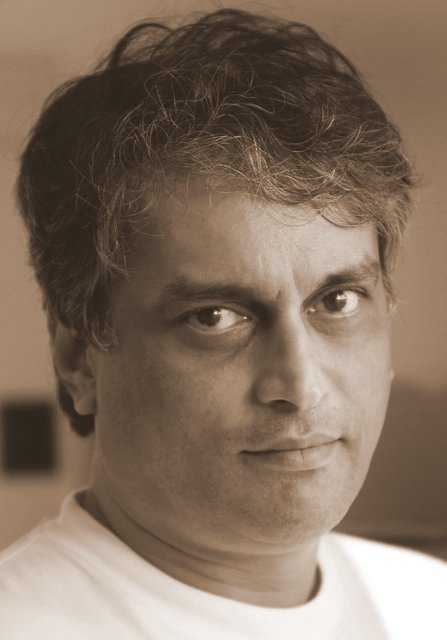business of paranoids
The 1990s were the best years of management. Re-engineering, Six Sigma, Core Competence, the Customerised Corporation, Mass Customisation, and a host of other ideas dominated the era. Michael Porter, C K Prahalad, Gary Hamel, Michael Hammer, Jack Welch, Tom Peters, among others, defined the rules of contest.
Despite the proliferation of ideas, one unusual writer-he was a practitioner like Welch-stood out. The odd guy: Intel’s Andy Grove.His book was a guide to deal with inflection points: dramatic changes in the rules of business. Inflection points could vapourise companies. What caught the fancy of the management world was the book’s title: Only The Paranoid Survive.
If the purpose of companies was happiness — customer happiness, that is — companies had to reflect that mood inside as well. How could paranoid workers create delighted customers?Well, Grove wasn’t just defining the aggressive mood of the 1990s-a decade where IBM was being pushed into the pit, Microsoft was acquiring pole position, and Intel was overtaking, or reinventing, itself. He was talking about the future, where upstarts could hobble giants.
To understand ‘paranoia’, just look at Google and Sony. One has changed the rules of competition; the other, once a byword for innovation, is playing catch-up.Grove, Intel’s then CEO, was forthright and intuitive even as he was explaining his book’s unusual title: “Business success contains the seeds of its own destruction.The more successful you are, the more people want a chunk of your business and then another chunk and then another until there is nothing left… the prime responsibility of a manager is to guard constantly against other people’s attacks and to inculcate this guardian attitude in the people under his or her management.”
Grove’s title has resonance even today. For, paranoia has two aspects. First, never tire of watching competition. Second, paranoia leads to innovation.Steve Bennett, CEO of accounting software major Intuit, gave an idea of the first aspect when he told USA Today recently: “It’s better to be paranoid and focus on doing everything you can to eat someone else’s lunch rather than being the person who gets their lunch eaten.”
Ravi Kant, managing director of Tata Motors, dwelt recently on paranoia’s second aspect at the Mumbai launch of strategy guru Vijay Govindarajan’s book, Ten Rules for Strategic Innovators. Great organisations, he said, require a crisis to think anew. He was talking about the Rs 500 crore loss his company incurred a few years ago and how it jumped back into the black by improving processes and creating new local and global markets.A crisis helped the organisation to reinvent itself.
So, as Kant put it, organisations (do) need to create a sense of crisis to manage the future better. In a sense, he was echoing the message of paranoia. As Grove wrote in 1996: “Most companies don’t die because they are wrong; most die because they don’t commit themselves.”Indeed, it wouldn’t be wrong today to say “only the paranoid win.”
For, paranoia is a state of mind that senses change and welcomes it. It makes innovation possible by focusing the mind.
Despite the proliferation of ideas, one unusual writer-he was a practitioner like Welch-stood out. The odd guy: Intel’s Andy Grove.His book was a guide to deal with inflection points: dramatic changes in the rules of business. Inflection points could vapourise companies. What caught the fancy of the management world was the book’s title: Only The Paranoid Survive.
If the purpose of companies was happiness — customer happiness, that is — companies had to reflect that mood inside as well. How could paranoid workers create delighted customers?Well, Grove wasn’t just defining the aggressive mood of the 1990s-a decade where IBM was being pushed into the pit, Microsoft was acquiring pole position, and Intel was overtaking, or reinventing, itself. He was talking about the future, where upstarts could hobble giants.
To understand ‘paranoia’, just look at Google and Sony. One has changed the rules of competition; the other, once a byword for innovation, is playing catch-up.Grove, Intel’s then CEO, was forthright and intuitive even as he was explaining his book’s unusual title: “Business success contains the seeds of its own destruction.The more successful you are, the more people want a chunk of your business and then another chunk and then another until there is nothing left… the prime responsibility of a manager is to guard constantly against other people’s attacks and to inculcate this guardian attitude in the people under his or her management.”
Grove’s title has resonance even today. For, paranoia has two aspects. First, never tire of watching competition. Second, paranoia leads to innovation.Steve Bennett, CEO of accounting software major Intuit, gave an idea of the first aspect when he told USA Today recently: “It’s better to be paranoid and focus on doing everything you can to eat someone else’s lunch rather than being the person who gets their lunch eaten.”
Ravi Kant, managing director of Tata Motors, dwelt recently on paranoia’s second aspect at the Mumbai launch of strategy guru Vijay Govindarajan’s book, Ten Rules for Strategic Innovators. Great organisations, he said, require a crisis to think anew. He was talking about the Rs 500 crore loss his company incurred a few years ago and how it jumped back into the black by improving processes and creating new local and global markets.A crisis helped the organisation to reinvent itself.
So, as Kant put it, organisations (do) need to create a sense of crisis to manage the future better. In a sense, he was echoing the message of paranoia. As Grove wrote in 1996: “Most companies don’t die because they are wrong; most die because they don’t commit themselves.”Indeed, it wouldn’t be wrong today to say “only the paranoid win.”
For, paranoia is a state of mind that senses change and welcomes it. It makes innovation possible by focusing the mind.

0 Comments:
Post a Comment
<< Home